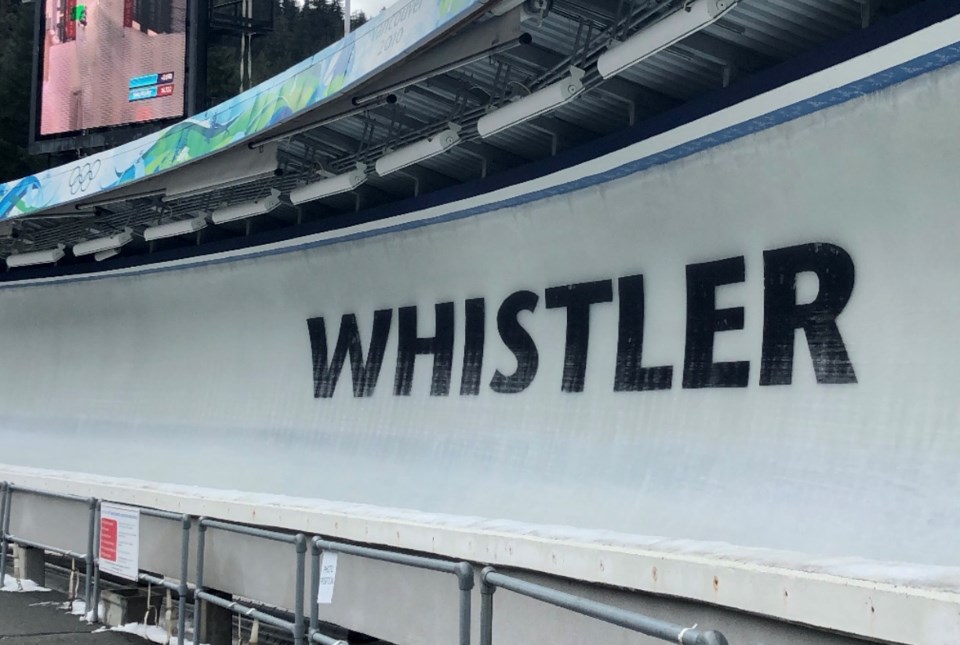A First Nations-led effort to stage the 2030 Olympics and Paralympics in Vancouver, Whistler and Sun Peaks would require at least $1 billion in public funds, new financial estimates claim.
The figure was included in the initial cost evaluation released on July 8 by the feasibility team exploring a potential bid as part of a draft hosting concept. It was prepared by Canadian Olympic Committee (COC) representatives under the leadership of the Lil’wat, Musqueam, Squamish and Tsleil-Waututh First Nations. According to the document, bringing the Games back to B.C. could cost up to $4 billion in total.
As partners in the potential bid, Resort Municipality of Whistler council and staff are “reviewing and digesting” the estimates, said Whistler Mayor Jack Crompton in an emailed statement.
“A council report will be coming shortly assessing the implications of Whistler’s participation as a host community,” he added. “We look forward to continued community dialogue and ask that residents continue to participate in the ongoing engagement process.”
The feasibility team says between $299 million and $375 million in government grants would be required to renovate existing Olympic venues from 2010, plus $165 million to $267 million needed to build new Olympic Villages and between $560 million and $583 million to cover public security.
The Games’ organizing committee would rack up a $2.5 billion to $2.8 billion bill that would be entirely covered by private funds earned through International Olympic Committee contributions, broadcast rights, sponsors, ticketing, licensing and merchandise sales.
The feasibility team estimated that $5 to $6 would flow into the region for every $1 of taxpayer money spent.
All project estimates also include significant contingencies. Not included in the cost breakdown is the price of essential services or discretionary spending from governments looking to capitalize on the Games.
The B.C. NDP government has provided no commitment so far and has reportedly given COC president Tricia Smith until Aug. 15 to provide a detailed plan, including whether all host communities and First Nations would each share costs and risks.
'[I]t’s selfish of us not to host the Games again'
When B.C. last hosted the Games in 2010, it cost $513 million (or $669 million, in 2022 dollars) to build brand-new athletic venues, plus $67 million ($87 million today) to create the two Olympic Villages.
The provincial government of the day initially said it would provide $600 million to host the 2010 Winter Olympics but increased that commitment to $765 million in 2009 as the Games neared. The federal government, meanwhile, covered the nearly $1-billion security price tag—a controversial figure that was substantially higher than the $125-million cost originally estimated to ensure public safety during the event.
Though the Vancouver 2010 Organizing Committee’s official financial ledgers are sealed until fall 2025—it is estimated the total cost came in around the $8-billion mark, including infrastructure upgrades—officials said the Games essentially broke even, with both revenues and expenses pegged at just under $1.9 billion.
Not included in any of those reports are the lasting benefits for the Whistler community, said Councillor Ralph Forsyth, citing everything from employee housing in Cheakamus to the four-per-cent “hotel tax” established for the Games that still funds a range of community initiatives today.
“The things that people forget about sometimes are things like skiing out to Creekside before Christmas,” he continued. “That absolutely would never have happened without the Olympics. That $22 million in snowmaking is an asset that we don’t even consider anymore.”
Though the overall cost to host the Games in 2030 would be similar to 2010, according to the feasibility team, the difference this time around would be the need for three villages as opposed to two (all of which would be transformed into housing after the Olympic flame is extinguished), while security costs would be nearly cut in half thanks to a new “intelligence-led” philosophy to securing major events, COC representatives said.
“Obviously, it’s a lot of money, but I think when you look at the assets that could be achieved from it—for our perspective in Whistler, the housing component would be huge for us, obviously—and when you think about the other assets that could use a rejuvenation, then [hosting] kind of makes sense,” said Forsyth.
Also exploring bids are 2002 Olympic host Salt Lake City, and Sapporo, Japan, the 1972 host. The IOC is expected to award the 2030 Games in May 2023.
“I think at the end of the day, it’s selfish of us not to host the Games again,” Forsyth added. “We have all the stuff to do it, so let’s do it for the benefit of the next generation of kids who go on to the Games.”
- With files from Bob Mackin




